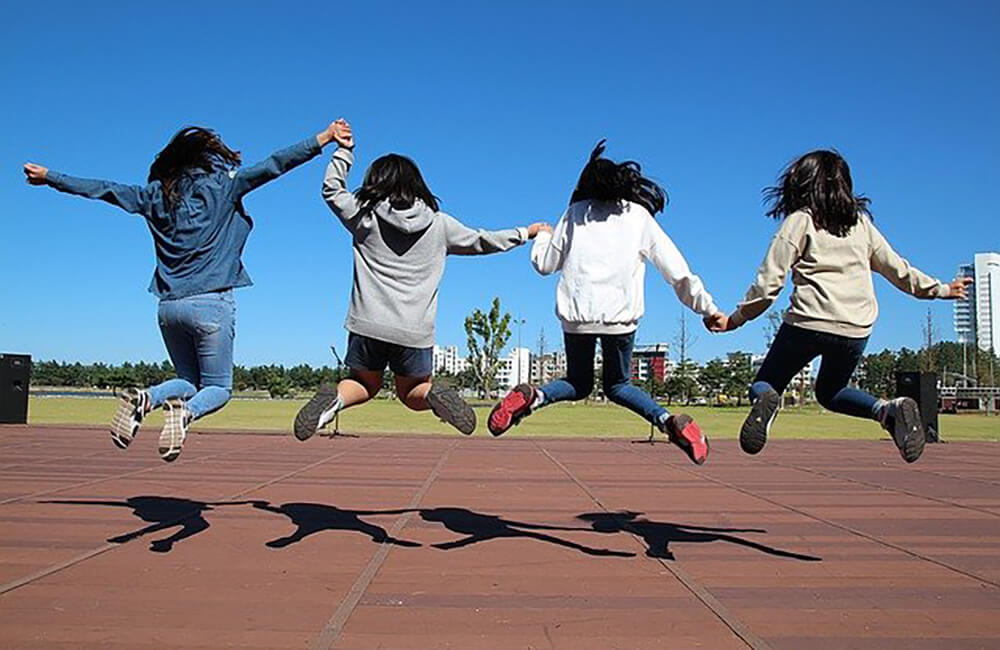Buffering the rise of depression and anxiety in kids amidst social isolation.
As we celebrate the new year, children and teenagers continue to be disappointed and frustrated with continued school closures and cancellations of sports and extracurriculars. Online schooling and social isolation continue to weigh our kids down, and the struggle with depression, anxiety, and self-harm amongst our youngest is surging.
Despite the hope that vaccinations bring to the world, for college- and school-aged children, the enormous letdown of not yet being able to return in person has taken a serious toll. Being trapped in their homes for months at end, with no hope of teachers and students being vaccinated or schools returning to healthy norms soon, our children, adolescents, and college students are undoubtedly struggling.
Recent data shows that suicide rates amongst high school students have spiked, and admissions to ERs and hospitalizations, as well as the rate of anxiety and depression, are on the rise amongst our youth.
Without hope, without goals, without a plan, and with nothing to look forward to, our children are turning to self-harm and suicide to escape helplessness and isolation. Our younger generation is in a national mental health crisis and we need to step up to take care of our kids.
Schools, teachers, pediatricians, family members, caregivers, school psychologists, and other mental health professionals need to take a hard look at how we are prioritizing our children’s daily lives, expectations, goals, and balance. The emphasis on online classes, grades, homework, exams, and achievement should perhaps take a back seat for the moment. Instead, perhaps we should be focusing our energy on exercise, nutrition, movement, creativity, family time, outdoor activities, mindfulness, and fun.
Christopher Peterson, one of the leading founders of positive psychology, emphasized the power of hope, meaning, purpose, and optimism, and how these factors battle learned helplessness and depression. Instead of focusing on pathology, positive psychology focuses on one’s strengths to help foster building a life of meaning and purpose. Happiness, resiliency, and engagement are core concepts of this philosophy and help move an individual from surviving to thriving.
In utilizing positive psychology, we clearly need to provide our youth with hope, exciting and meaningful goals, and creative engagement. It is these ingredients that will keep kids, teens, and college students motivated and buffer their anxiety, depression, and suicidal thoughts.
Perhaps it is time to think outside the box, and as teachers, parents, and professionals, we can create a focused space to integrate the above daily practices in class and at home and infuse our children with joy, meaning, and creativity on a daily basis.
Some ideas that have been successfully integrated into online classrooms and in homes that could boost kids’ moods and spirits include:
- Hands-on creative projects during class time. This could include art, cooking, baking, gardening, music and singing, and building.
- Movement. Beginning and ending each class with 10 minutes of fun movement, such as dancing, jump roping, hula hooping, and balloon toss could generate laughter and relief.
- Mindfulness has been shown to have tremendous positive effects on depression and anxiety, and practicing 10 minutes of mindfulness during class time could be beneficial to all.
- Invite kids to take their iPads or laptops outside to their backyards, decks, and balconies and engage in outdoor learning environments.
- Encourage students to come up with fun learning projects, experiments they can conduct at home, or music and art projects.
- Group projects are key. Even though kids are on Zoom, they can connect and collaborate with each other to engage in teamwork and socialization.
- Parents can integrate walks, hikes, bike rides, skateboarding, running, and other physical activities with their kids on a daily or weekend basis.
- Parents and family can plan camping and backpacking trips, facilitating back to nature and unplugged days for their kids.
- Think out of the box. What would make your kid laugh and play? Convert your garages, basements, kitchens, bathrooms, and backyards into a magical space for theatre, music, art, crafts, cooking, baking, building, exercise, and most of all connected fun with you.
Let’s give all our children and teenagers plenty of hope, meaning, fun, creativity, and positive engagement and help them thrive through the depression and anxiety of online loneliness, social distancing, and school closures.
